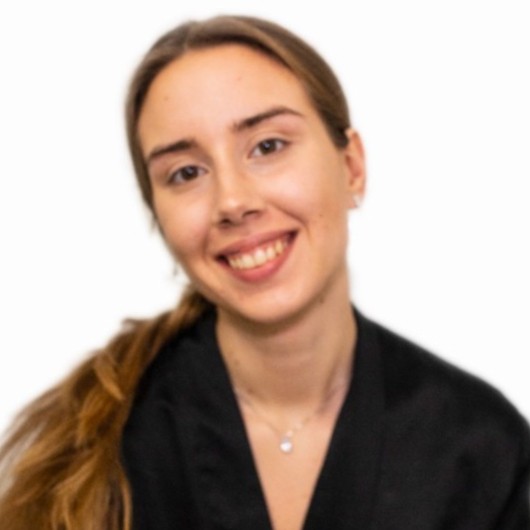An interview with Arawa Kolossa: Is It Parkinson’s? Using Artificial Intelligence to Predict and Classify Parkinsonism
Biography
I am a doctoral candidate for a European Project called Artificial Intelligence for Parkinson’s disease, funded by the Marie Skłodowska-Curie Actions. I hold two Master’s degrees in research, one in cognitive neuroscience and one in Artificial Intelligence, both cum laude.
Can you tell me more about your Advocacy?
In my project, I develop Artificial Intelligence models to detect early signs of Parkinson’s and distinguish between its different forms using brain imaging data. Currently, individuals with atypical parkinsonism — conditions that mimic Parkinson’s disease but progress differently — are often misdiagnosed. By applying AI to brain scans, my research aims to support clinicians with faster and more accurate diagnoses, enabling earlier and more personalized treatment.
What is your passion and how did you get involved in Parkinson’s awareness and hope for a cure?
I am passionate about making a true impact in healthcare, merging Artificial Intelligence and Neuroscience. Parkinson’s is one of the most prevalent neurodegenerative diseases, with 4 people out of 100 over eighty years old who develop it. I am not sure when we will have a cure, but for now, we can help those who still have not had the onset of most symptoms receive the appropriate treatment and medications, possibly delaying the onset.
What type of goals do individuals with Parkinson’s have when working with you?
Currently, I don’t work directly with patients. If they allow their data to be processed and used for research, I will work with their brain scans. I advise everyone to allow the hospitals to use their health data, this will be used for research and to progress in science- ultimately helping your kids and future generations. If you have doubts, you can always ask how your data will be processed and for what it will be used.
What effect can your Advocacy have on an individual with Parkinson’s?
My project will help clinicians identify Parkinson’s disease and atypical parkinsonism earlier, enabling more accurate and timely treatment. This can improve quality of life, slow progression, and reduce misdiagnoses.
What would you like to see as a future goal for your Advocacy?
I would like to see AI-based diagnostic tools integrated into clinical settings so that early detection becomes accessible to every hospital and patient, regardless of location or resources.
What events do you participate in?
I participate in international neuroscience and AI conferences, interdisciplinary workshops and courses, and awareness initiatives related to Parkinson’s research and early diagnosis.
How does this also assist the caregivers?
Earlier diagnosis can help caregivers prepare emotionally and practically for the future. It allows for early interventions, support planning, and a better understanding of the symptoms their loved one may face.
How can someone get in touch? What is your website?
People can reach out via LinkedIn https://www.linkedin.com/in/arawa-kolossa/.
In your opinion what is the key to effective advocacy?
Clarity, compassion, and collaboration—communicating science in a way that connects both to patients and policymakers, and ensuring that research translates into tangible societal impact.
How can we better fundraise to support a cure for Parkinson’s?
By combining public awareness with transparent scientific communication—showing how every contribution fuels specific advancements, from clinical trials to data-driven research like AI-based diagnosis.
What other activities do you undertake to help improve and support your daily living e.g. exercise and alternative remedies?
I maintain a balanced routine that includes physical exercise, a Mediterranean diet, mindfulness, and regular breaks from work. Sleep hygiene is also essential to me — I usually sleep 8–9 hours and keep consistent sleep and wake times.
Why should people who don’t have Parkinson’s care about this?
Because neurodegenerative diseases affect not just individuals but entire families and healthcare systems. Early detection and prevention benefit everyone, ensuring healthier aging and more sustainable healthcare.
Have you had any family members or relatives affected by Parkinson’s disease?
Yes, my great uncle passed. I have also met many patients and families affected by it through my academic collaborations and acquaintances, and their experiences deeply motivate my work and are close to my heart.
What are your social media tags?
LinkedIn: https://www.linkedin.com/in/arawa-kolossa/
If you had one final statement or quote you could leave for the Parkinson’s community, what would it be?
“People change, our brains change — it can feel like getting to know a new person, and it’s okay to take your time to adjust.”
_______________________________________________
TogetherForSharon® In memory of my mother, Sharon to voice awareness & hope for a Parkinson’s Disease cure. Sharon’s Son, George
Support https://www.togetherforsharon.com/shop/

